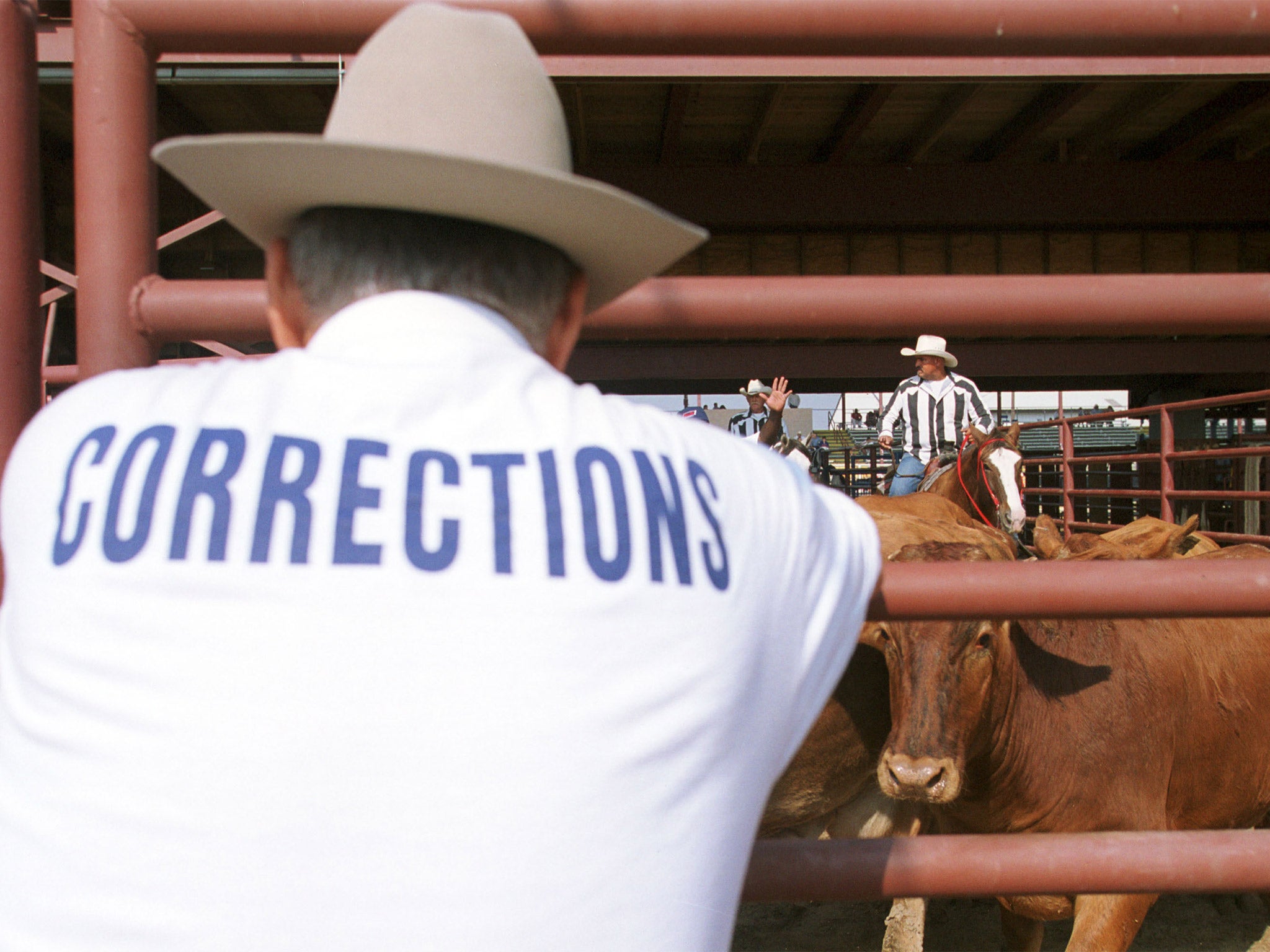Angola penitentiary prison farm: a throwback to a very different kind of justice
Eyewitness: A prison that seems to stand for the opposite of redemption and second chances

Your support helps us to tell the story
From reproductive rights to climate change to Big Tech, The Independent is on the ground when the story is developing. Whether it's investigating the financials of Elon Musk's pro-Trump PAC or producing our latest documentary, 'The A Word', which shines a light on the American women fighting for reproductive rights, we know how important it is to parse out the facts from the messaging.
At such a critical moment in US history, we need reporters on the ground. Your donation allows us to keep sending journalists to speak to both sides of the story.
The Independent is trusted by Americans across the entire political spectrum. And unlike many other quality news outlets, we choose not to lock Americans out of our reporting and analysis with paywalls. We believe quality journalism should be available to everyone, paid for by those who can afford it.
Your support makes all the difference.Any first-time visitor to the Angola penitentiary prison farm in Louisiana would be forgiven for a little nervousness. Enquiring eyes track you as you pass down the covered walkways that connect its low-slung yellow buildings and through its long, suffocating dormitories, each bed and locker home for the inmates, more than half of whom will die on the farm – either by natural means or by lethal injection.
This is no ordinary nick. It is the largest maximum security prison in America and is well known for its harsh conditions. Air conditioning came to the dormitories and living areas only in the 1990s, and a new lawsuit filed just this spring claims that medical care for the 6,000 prisoners here still remains wholly inadequate. A still pending 2013 lawsuit says the soaring summer temperatures on its death row constitutes cruel and unusual punishment.
Come here – in my case to interview a former inmate, Wilbert Rideau, who wrote a book about Angola that was later to become the Oscar-nominated documentary film, The Farm: Angola USA – and you’ll be allowed only a tiny glimpse of its 28-square mile grounds, an area the size of Manhattan. It has cabbage fields and herds of cows and the slaves who first tilled this land came from Angola, hence the name. There is, and has been for the last half century, a prison rodeo, where inmates ride bulls in a 10,000-seat arena on prison land that draws in thousands of visitors. Only the best behaved prisoners can take part, however.
Mr Rideau told me that worse than anything was the hopelessness, that the prison seemed to stand for the opposite of redemption and second chances. “It used to be that the general philosophy of the justice system was to punish you to teach you a lesson,” he said. “That’s the reason they created prisons in this country, but there should be redemption and giving people the chance to start again.”
Mr Rideau was released in 2005 after his murder conviction was reduced to manslaughter. Now Albert Woodfox may be about to get a second chance too – but only after over four decades in solitary confinement.
Join our commenting forum
Join thought-provoking conversations, follow other Independent readers and see their replies
Comments